Happy Friday! Some bummer bookkeeping from Andrew before we start: After four great years, today is my last day at The Dispatch. Next week, I’ll be moving over to The Bulwark, where I’m taking over as White House correspondent. I’ll miss my coworkers, our readers, and this newsletter—but what a news day to go out on!
Up to Speed
- Special counsel Robert Hur declined to bring charges Thursday against President Joe Biden for mishandling classified documents, although he said Biden’s actions had presented “serious risks to national security.” But it was the Hur report’s comments on Biden’s demeanor and recall during their interviews that sent shockwaves through Washington on Thursday afternoon: Hur wrote that “Biden’s memory also appeared to have significant limitations,” adding that “at trial, Mr. Biden would likely present himself to a jury, as he did during our interview of him, as a sympathetic, well-meaning, elderly man with a poor memory.”
- The White House pushed back strongly against Hur’s assertions about Biden’s mental fitness. In a letter to Hur released shortly after the report, White House lawyers argued that “the same predictable memory loss occurred with other witnesses in this investigation. Yet unlike your treatment of President Biden, your report accepts other witnesses’ memory loss as completely understandable given the passage of time.” The letter also said that Biden had a decent reason to be distracted: He sat for his interviews in the days immediately after the October 7 Hamas attack on Israel.
- The Supreme Court heard oral arguments on Thursday for a Colorado case considering whether states can remove former President Donald Trump from the ballot if they judge him to have incited an insurrection. The Colorado Supreme Court ruled in December that the state could bar him from the ballot, but the Supreme Court seemed skeptical of that argument: “I think that the question that you have to confront is why a single state should get to decide who gets to be president of the United States,” Justice Elena Kagan, a member of the court’s liberal minority, told Colorado’s lawyers. “What’s a state doing deciding who other citizens get to vote for for president?”
- Marianne Williamson, the two-time longshot Democratic presidential candidate, announced Wednesday she would suspend her campaign after failing to break out of the low single digits in the South Carolina and Nevada primaries. “I hope future candidates will take what works for them, drinking from the well of information we prepared,” Williamson, the self-help author who campaigned on promises of spiritual renewal and a policy agenda to Biden’s left, said in a statement.
- Donald Trump racked up another victory in the Republican primary on Thursday, winning the nominating caucuses in the U.S. Virgin Islands and securing all nine of the territory’s delegates to the GOP convention in Milwaukee. The former president earned 74 percent, far outpacing Nikki Haley’s 26 percent, a spokesman for the Virgin Islands Republican Party announced in a press release. Trump also won Thursday’s Nevada GOP caucuses, a contest in which he ran virtually unopposed. Haley declined to pay the $55,000 to enter the contest, claiming it was rigged to boost the former president. She participated in Tuesday’s GOP primary in the state instead, coming in second place to “none of these candidates.”
- Larry Hogan of Maryland is running for Senate, Politico first reported Friday morning. The two-term former governor and Republican announced in a video posted online shortly after the news broke that he will contend for the seat held by retiring Democrat Ben Cardin—a coup for Republican Senate leadership, who tried unsuccessfully to recruit Hogan to challenge Democratic Sen. Chris Van Hollen in 2022. If he wins the open seat this fall, he would become the first member of his party to represent Maryland in the Senate since Charles Mathias, a liberal Republican, retired in 1987. Hogan is a moderate, has been a vocal critic of Donald Trump, and endorsed Nikki Haley for president last month.
‘Worse Than an Indictment’
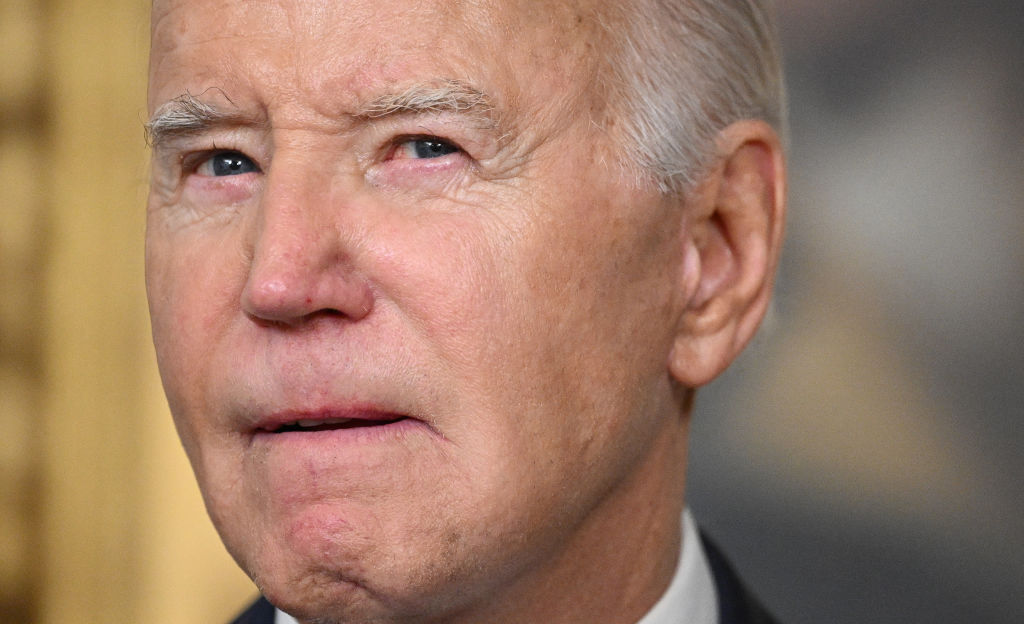
Alarm bells about President Joe Biden’s age are ringing anew in Democratic circles after a special counsel investigation into his mishandling of classified documents absolved the 81-year-old of criminal liability but described him as a doddering old man with a failing memory.
“This is worse than an indictment,” a Democratic strategist fretted to The Dispatch. This strategist requested anonymity to speak candidly about fears inside the Democratic Party that voters’ concerns about Biden’s age, now fed by the report special counsel Robert Hur issued Thursday, could sink the president’s reelection bid and return his predecessor, likely Republican nominee Donald Trump, to the White House.
Hur recommended against indicting Biden for retaining classified documents from his decades in the Senate and two terms as vice president, saying the commander-in-chief’s actions were not malicious and did not warrant prosecution. But the special counsel, appointed to investigate the matter by Attorney General Merrick Garland, went on to paint Biden as mentally and physically feeble.
“We have also considered that, at trial, Mr. Biden would likely present himself to a jury, as he did during our interview of him, as a sympathetic, well-meaning, elderly man with a poor memory,” Hur wrote in his report, explaining why the case against the president is weak and a jury would be unlikely to convict.
These and similar comments from Hur later in the report, publicized by Garland at his discretion, left Democratic insiders reeling.
“It’s extremely bad,” a veteran Democratic operative said. “So bad.”
Their anxiety about Biden’s 2024 outlook is justified. Trump has led the president in most public opinion polls, nationally and in the key battleground states, dating back to last fall. Democratic operatives we spoke to conceded they are worried that voters’ concerns about the president’s age, likely now fueled by Hur’s report, will be impossible to overcome. Some are even beginning to quietly question whether Biden can continue as the party’s presidential standard bearer, although their unwillingness to say so on-the-record indicates the president’s renomination is not materially threatened.
“It reinforces the narrative,” said a Democratic insider in Pennsylvania, a crucial swing state. “It’s a bad look no matter how you slice it.”
In a hastily called evening news conference, Biden celebrated Hur’s findings on the issue of his legal culpability. But perhaps recognizing the real danger to his campaign is not doubts about his handling of classified documents but about his ability to serve another four years effectively, the president angrily dismissed the special counsel’s evaluation of his memory—bristling especially at Hur’s assertion that he “did not remember, even within several years, when his son Beau died.”
“I know there’s some attention paid to some language in the report about my recollection of events,” Biden said from the Diplomatic Room of the White House. “There’s even reference that I don’t remember when my son died. How in the hell dare he raise that? Frankly, when I was asked the question, I thought to myself, it wasn’t any of their damn business. I don’t need anyone to remind me when he passed away.”
The president then took questions from the assembled reporters, swatting with equal fire at their queries about his age and his message to voters who, according to essentially all public opinion polling, are worried about its impact on his ability to serve. “My memory is fine,” he said at one point.
Responding to another question about voters’ concerns about his age, a combative Biden directed the query back at the reporter. “That is your judgment,” he said. “I’m the most qualified person in this country to be president of the United States and finish the job I started.”
Some Democratic operatives insist that the sheer freakout ensuing in response to Hur in some quarters of their party is wildly overblown. One pointed to Trump’s own cognitive issues, including the Republican’s rant last month about Nikki Haley that claimed his opponent was “in charge of security” for the U.S. Capitol on January 6. (The former president had clearly mixed up Haley with Rep. Nancy Pelosi, a California Democrat who at that time was speaker of the House.)
Trump, who turns 78 in June, is also elderly—and he’s a deeply flawed candidate in his own right. Some Democratic operatives contend there’s plenty of fertile ground for Biden to make the election a choice on leadership and issues—like abortion rights—ultimately favorable to the incumbent. Maybe so. There’s certainly plenty of race yet to run. And it’s true: The former president is a uniquely blemished opponent.
But after Thursday, the current president certainly has his work cut out for him.
California Dreamin’
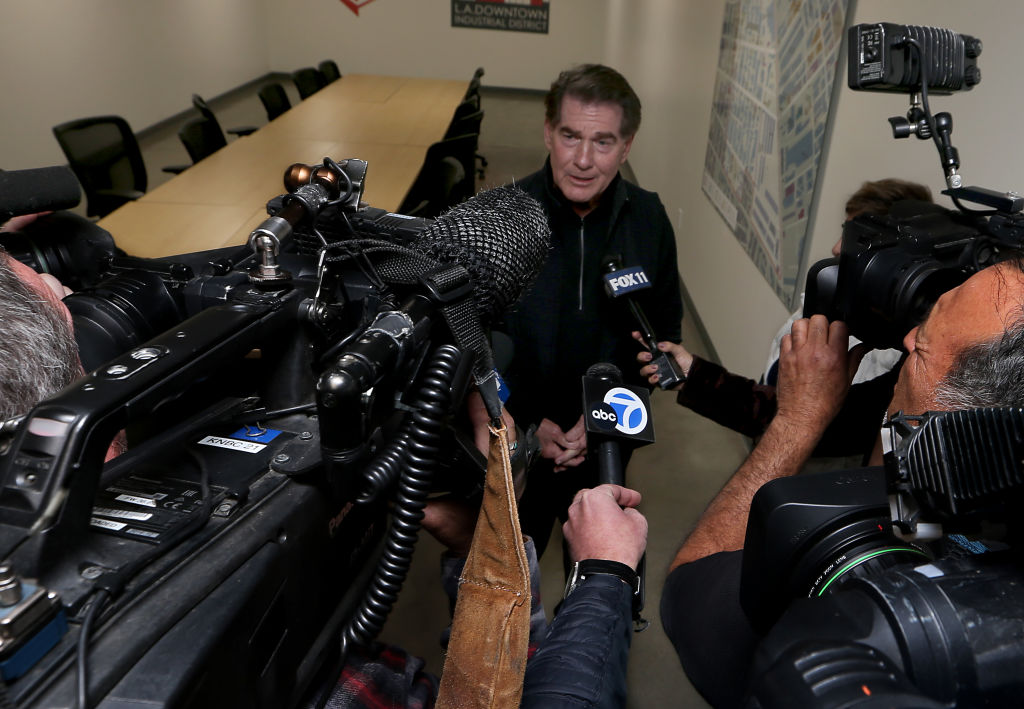
Early voting began this week in California’s March 5 Senate jungle primary, in which the top two vote-getters among all candidates will advance to November’s general election. Frontrunner Adam Schiff is trying to ensure he’s the only Democrat who makes the cut.
“Two leading candidates for Senate. Two very different visions for California,” the narrator of Schiff’s latest ad intones. “Steve Garvey, the leading Republican, is too conservative for California. He voted for Trump twice and supported Republicans for years, including far-right conservatives. Adam Schiff, the leading Democrat, defended democracy against Trump and the insurrectionists.”
Polls do show that Garvey, a former star baseball player for the Los Angeles Dodgers and San Diego Padres, is the leading Republican in the contest. But while the ad appears to criticize him, California election-watchers agree it’s actually an attempt to raise his profile among conservatives in order to boost him over the race’s second-place Democrat, Rep. Katie Porter, to ensure an easy victory for Schiff in November. The latest poll in the contest has Schiff at 25 percent support, with Garvey and Porter tied at 15 percent and Rep. Barbara Lee, another Democrat, trailing at 7 percent.
While both Schiff and Porter are liberals in good standing, they hail from different factions of the Democratic Party. Schiff, the highest-ranking Democrat on the House Intelligence Committee during the Trump presidency, used the perch to establish himself as the Resistance Democrat par excellence; Porter, by contrast, is an anti-corporate crusader of the Bernie Sanders wing who prides herself on refusing to accept corporate money. Porter is a strong small-dollar fundraiser, but has been outpaced in the money department by Schiff: He ended 2023 with nearly $35 million in his campaign war chest, while she had $13 million in the bank.
Garvey, on the other hand, reported just $308,000 cash on hand at the end of the year. If he was going to get his message on TV, someone else was going to have to do it for him.
Porter has accused Schiff of fighting dirty with the ads. “Adam Schiff knows he will lose to me in November,” she tweeted last week. “That’s what this brazenly cynical ad is about—furthering his own political career, boxing out qualified Democratic women candidates, and boosting a Republican candidate to do it.”
But many Californians, Republicans and Democrats alike, argue that these bank-shot tactics are just standard strategy in the state’s jungle primaries.
“I think we saw this coming a mile away given the money advantage that Schiff had and Garvey being famous enough to be an obvious candidate that could consolidate a GOP vote,” California Republican consultant Rob Stutzman told The Dispatch. “I think once Schiff saw that Garvey didn’t really raise any money, when the report came out at the end of the month, they were ready to spring into action and give him the TV campaign that he can’t afford himself.”
“He’s referring to Garvey as the leading Republican candidate, and that is in fact what he is, according to all the polls,” California Democratic strategist Garry South told The Dispatch. “So it’s not like he’s trying to trump him up into something—he’s not.”
South is an authority on these sorts of tactics: He was the strategist who pioneered them in California politics back in 2002, when he managed Democratic Gov. Gray Davis’ reelection campaign. At that time, California did not yet have open primaries, but the Davis campaign spent millions attacking Richard Riordan, the candidate they had deemed the strongest general-election threat. Riordan lost the Republican primary, and Davis cruised to reelection.
Schiff’s actions, South argued, weren’t even as cynical as that. “When you have a top-two primary where every candidate is on the same ballot, you’re all essentially running against one another,” he said. “It’s not unfair, it’s not underhanded, it’s not dirty pool. It’s just what you have to do when you’re in the context of a race where everyone is on the same ballot.”
Notable and Quotable
“I’ve sat in many high level national security meetings, where every detail is a matter of life and death. You don’t want someone Hur described as ‘a sympathetic, well meaning, elderly man with a poor memory’ as president.”
—Fundraising email from Rep. Dean Phillips, Democratic primary challenger to President Biden, February 9, 2024


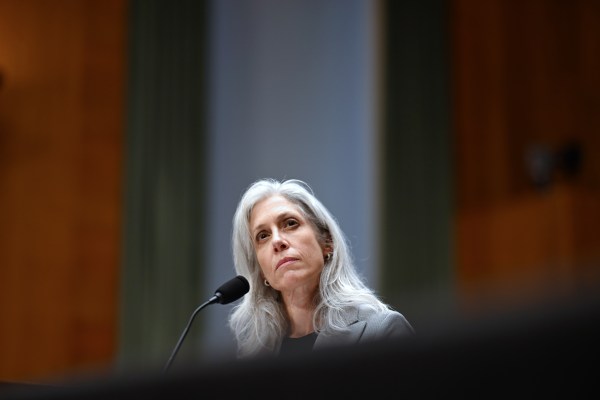
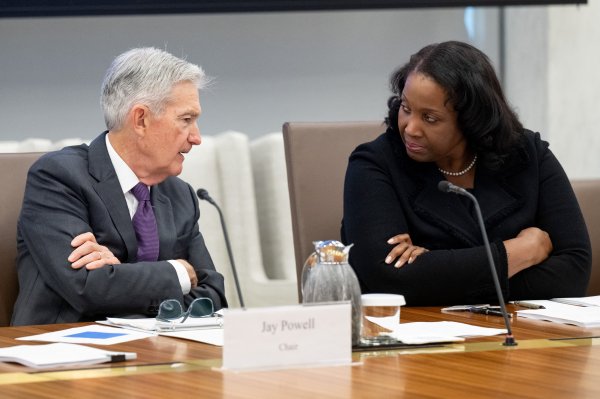


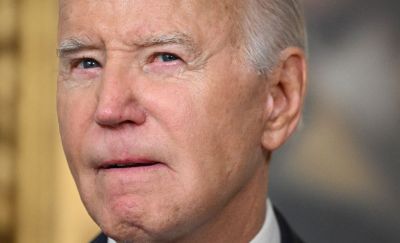
Please note that we at The Dispatch hold ourselves, our work, and our commenters to a higher standard than other places on the internet. We welcome comments that foster genuine debate or discussion—including comments critical of us or our work—but responses that include ad hominem attacks on fellow Dispatch members or are intended to stoke fear and anger may be moderated.
With your membership, you only have the ability to comment on The Morning Dispatch articles. Consider upgrading to join the conversation everywhere.